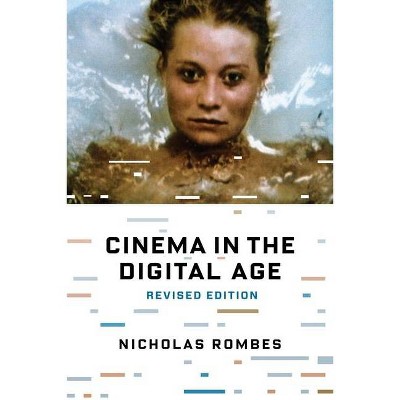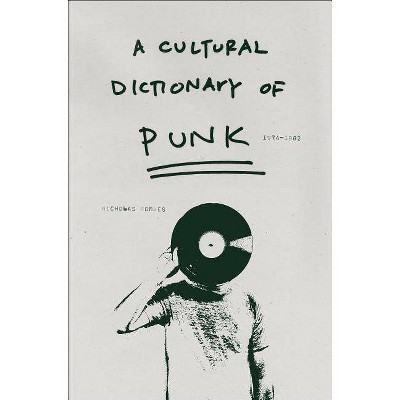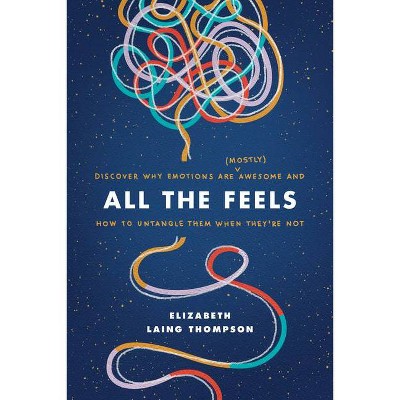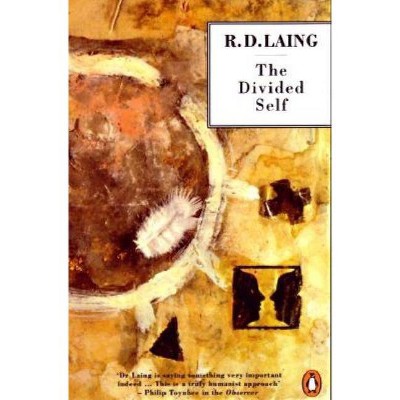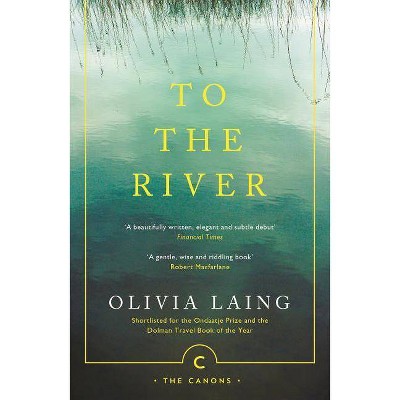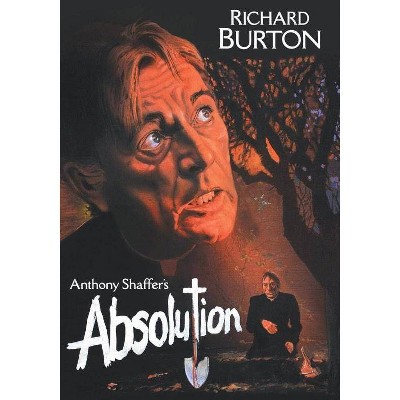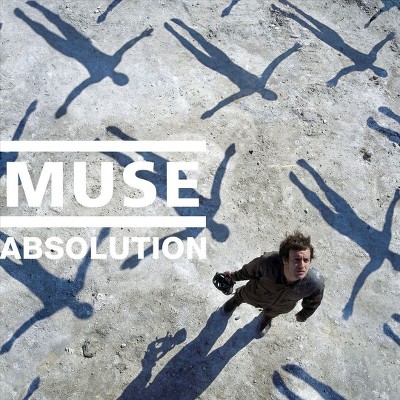The Absolution of Roberto Acestes Laing - by Nicholas Rombes (Paperback)
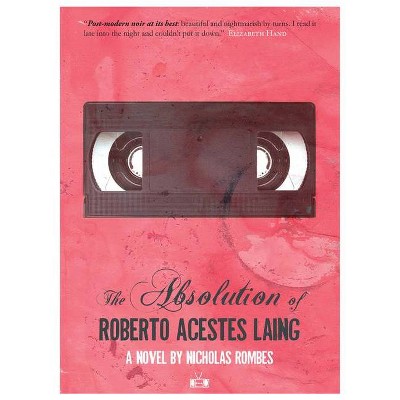
Similar Products
Products of same category from the store
AllProduct info
<p/><br></br><p><b> About the Book </b></p></br></br>This debut will ensure Nicholas Rombes the status of a distinctive and fresh American visionary; David Lynch admirers take note.<br><p/><br></br><p><b> Book Synopsis </b></p></br></br><p><strong>*A Best Book of 2014</strong> --<em>Flavorwire</em>, <em>Entropy Magazine</em>, <em>Book Riot</em></p> <p><strong>The novel is an attempt to write about film through fiction, engaging both art forms at once with the analytic mind of the academic and the imagination of the storyteller. In the process, Rombes found the freedom of fiction pushing him towards a new type of writing. For the reader, there is little we can know for sure, but this is what makes the book so exciting.<br />--<em>Irish Times</em></strong></p> <p><em><strong>Synopsis</strong></em><br /> In the mid-'90s a rare-film librarian at a state university in Pennsylvania mysteriously burned his entire stockpile of film canisters and disappeared. Roberto Acestes Laing was highly regarded by acclaimed directors around the globe for his keen eye, appreciation for eccentricity, and creativity in interpretation.</p> <p>Unsure at first whether Laing is a pseudonym or some sort of Hollywood boogeyman, a journalist manages to track the forgotten man down to a motel on the fringe of the Wisconsin wilds. Laing agrees to speak with the journalist, but only through the lens of the cinema. What ensues is an atmospheric, cryptic extrapolation of movies and how they intertwine with life, and the forgotten films that curse the lost librarian still.</p><p/><br></br><p><b> Review Quotes </b></p></br></br><br><p>Beautifully composed, chillingly paced, and formed of descriptions of films you want desperately to see even if you know they might drive you mad, <em>The Absolution of Roberto Acestes Laing</em> interweaves fiction and reality too tightly for comfort. <br />--<em>Full Stop</em></p><p>Like the best of Borges (Borges, another film scholar and curator of secret histories), this novel has the erudite and exegetic tone that suggests answers and solutions, while understanding that riddles don't resonate because of their answers, but because of what they ask. <br />--<em>Los Angeles Review of Books</em></p><p>Rombes's knowledge and caretaking of film history, as well as the strange feeling that comes from imagining lost artworks by some of our greatest directors, makes this debut novel addictive reading. <br />--Blake Butler, <em>Vice</em></p><p>Like Owen King in <em>Double Feature</em> and Steve Erickson in <em>Zeroville</em>, Rombes displays a staggering knowledge of cinematic technique and history and is able to use it in the service of entirely realized characters who also come across as a bit unhinged. A novel--and a very welcome one at that--about the right to be forgotten and about the immense joys that impermanence can provide. <br />--<em>Brooklyn Rail</em></p><p>This story is a metaphysical layer cake, and all the ingredients are dark, bloody, and unsettling. Rombes strikes me as a spiritual successor to Roberto Bolaño, finding the intersection of art and life, and enfolding it in a gradually increasing sense of paranoia and doom. <br />--Diesel, a Bookstore recommendation</p><p>Kafka directed by David Lynch doesn't even come close. It is the most hauntingly original book I've read in a very long time. Nicholas Rombes' <em>The Absolution of Roberto Acestes Laing</em> is a strong contender for novel of the year.<br />--<em>3: AM Magazine</em></p><p>There are a lot of writers who explore the cinematic, but, frankly, most of them haven't got a clue about what that means. Rombes, who has written eloquently about film for years, here debuts a novel about the intersection of writing and film, among other things. In a year of uncontrolled genre-jumping, Rombes' novel stands out for its awareness of the intersection of artistic forms.<br />--<em>Flavorwire</em> (Best Books of 2014)</p><p>I very much enjoyed this weird, disturbing, sometimes effed-up novel about strange films, lost films, and the fragile faith in the difference between our fictions and our realities.<br />--Jeff VanderMeer, <em>Electric Literature</em></p><p>Excellent and nightmarish... Rombes's novel is a love letter to this art of misremembering: these "destroyed films" become as real as any film playing in a theater near you.<br />--<em>Paris Review</em> Daily</p><p>This book is a dissociative and cryptic and weirdly terrifying exploration of what happens when stories (or the people who tell them) are destroyed, and how we confront annihilation. For fans of Bolaño and Borges, or anyone game for a challenging and fascinating read. <br />--Left Bank Books Staff Pick</p><p>Ambitious and haunting, a masterfully told allegorical tale.<br />--<em>Largehearted Boy</em></p><p>One of the Best Books of 2014.<br />--<em>Flavorwire</em></p><p>The novel is an attempt to write about film through fiction, engaging both art forms at once with the analytic mind of the academic and the imagination of the storyteller. In the process, Rombes found the freedom of fiction pushing him towards a new type of writing. For the reader, there is little we can know for sure, but this is what makes the book so exciting. <br />--<em>Irish Times</em></p><p>Incredibly gripping... From the periphery of the map this slim book conjures, a stabbingly vivid account of loss worms its way into the work, suggesting that the sought absolution of the novel's title is less for Laing than it is for the book's narrator. A rather remarkable effect. <br />--Glenn Kenny</p><p>Like a cross between Paul Auster's <em>The Book of Illusions</em> and Janice Lee's <em>Damnation</em>, <em>The Absolution of Roberto Acestes Laing</em> is at once smart and slyly unsettling. It is expert at creating a quietly building sense of dread while claiming to do something as straightforward as describe lost films--like those conversations you have in which you realize only too late that what you actually talking about and what you <em>think</em> you are talking about are not the same thing at all. With Rombes, Two Dollar Radio deftly demonstrates why it is rapidly becoming the go-to press for innovative fiction.<br />--Brian Evenson</p><p>Suffused with the best elements and obscure conspiracies of Bolaño, Ligotti and speculative fiction, Rombes' work gnaws away at the limits of what a novel looks like. Through the writing of films that never existed, it finds a space at once eerily familiar and entirely of its own.<br />--Evan Calder Williams</p><p>This hallucinatory and terrifying secret history of film is so meticulously researched and gorgeously written that I wonder if, in fact, Nicholas Rombes has uncovered a lost trove of works by David Lynch, Orson Welles, Antonioni and Jodorowsky somewhere in the California desert. <em>The Absolution of Roberto Acestes Laing</em> is post-modern noir at its best: beautiful and nightmarish by turns. I read it late into the night and couldn't put it down.<br />--Elizabeth Hand</p><br><p/><br></br><p><b> About the Author </b></p></br></br><strong>Nicholas Rombes</strong> teaches in Detroit, Michigan. He is author of <em>Ramones</em> from the 33 1/3 series and the book 10/40/70. His writing has appeared in <em>The Believer</em>, <em>Filmmaker Magazine</em>, the <em>Los Angeles Review of Books</em>, <em>n+1</em>, and <em>The Rumpus</em>.
Price History
Price Archive shows prices from various stores, lets you see history and find the cheapest. There is no actual sale on the website. For all support, inquiry and suggestion messagescommunication@pricearchive.us
